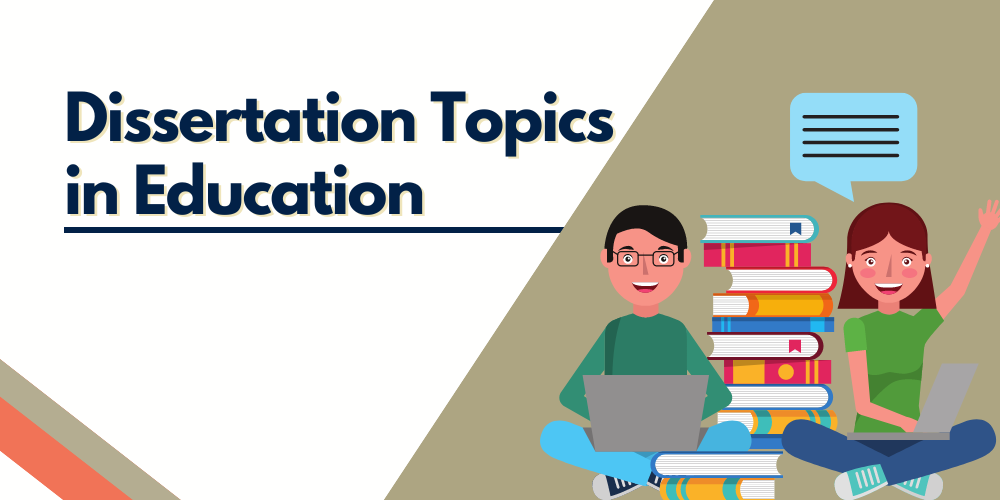Introduction
Crafting a compelling education dissertation begins with selecting the right topic. Whether you’re pursuing a PhD or master’s degree, our expertly curated list of education dissertation topics offers innovative ideas to inspire your research. From inclusive education to educational policy reforms, we provide dissertation help tailored to your academic goals. Let our custom dissertation writing expertise guide you toward scholarly success and meaningful educational contributions.
List of Education Dissertation Topics
Impact of Technology on Educational Leadership
- Transforming school management systems through AI-powered leadership tools
- The role of technology in enhancing decision-making in educational leadership
- Integrating digital communication tools to improve administrative effectiveness
- Evaluating the impact of data analytics on strategic planning in schools
- Leadership challenges in managing remote learning technologies
Is Parental Involvement in Education Significant
- Analyzing the impact of parental engagement on primary school academic performance
- Socioeconomic disparities in parental involvement and their effects on student learning
- Parental influence on behavioral outcomes in early childhood education
- Technology as a tool for enhancing parent-teacher collaboration
- The effectiveness of parental workshops in supporting academic achievement
Bilingual Education
- Comparing academic outcomes between bilingual and monolingual students
- The cognitive advantages of early bilingual education in primary schools
- Challenges of implementing bilingual education in multicultural classrooms
- Teacher preparedness for delivering bilingual instruction
- The role of native language retention in bilingual student identity formation
The Effectiveness of Mindfulness-Based Interventions
- Impact of school-based mindfulness programs on student stress and anxiety
- Improving attention span and emotional regulation through mindfulness in education
- Mindfulness training for teachers: effects on classroom climate and student behavior
- Evaluating the long-term benefits of mindfulness in adolescent education
- Comparative study of mindfulness and cognitive-behavioral interventions in schools
Educating Students Through Online Educational Programs
- Effectiveness of fully online versus hybrid educational programs in K–12 education
- Digital pedagogy: Adapting teaching strategies for online learning success
- Addressing the digital divide in online education for underserved communities
- Student motivation and engagement in asynchronous online learning environments
- The role of teacher presence and feedback in online education programs
Inclusion and Education
- Implementing inclusive education policies in mainstream classrooms
- Teacher perceptions and attitudes towards inclusive teaching practices
- Measuring academic outcomes of inclusive versus segregated education
- Barriers to inclusive education in low-resource schools
- Collaborative teaching models in support of inclusive classrooms
One-to-One Technology in the Elementary Classroom
- Evaluating student learning outcomes in 1:1 technology-integrated classrooms
- Best practices for implementing 1:1 device programs in elementary education
- Teacher training and readiness for one-to-one technology initiatives
- Assessing digital literacy development through personalized learning tools
- The impact of 1:1 technology on classroom management and student behavior
Socioeconomic Factors Affecting Educational Attainment
- The role of family income in shaping early educational opportunities
- Access to academic resources and its effect on student achievement gaps
- Socioeconomic background and college enrollment trends
- Educational resilience among students from low-income households
- Policy interventions to address socioeconomic disparities in education
Teacher-Student Relationships and Academic Performance
- The influence of positive teacher-student relationships on student motivation
- Longitudinal analysis of trust and respect between students and teachers
- Impact of emotionally supportive teacher interactions on academic growth
- Gender differences in teacher-student relational dynamics
- Classroom management and the role of student-teacher rapport
The Effects of Continual Standardized Testing
- Psychological effects of frequent standardized testing on young learners
- How standardized tests shape curriculum design and instructional time
- Evaluating the fairness and validity of test-based performance assessments
- Teacher burnout in high-stakes testing environments
- The correlation between test frequency and student academic retention
Blended Learning Models in K–12 Education
- Effectiveness of flipped classroom models in secondary education
- Integrating face-to-face and digital learning for personalized instruction
- Student engagement in hybrid classrooms: A comparative study
- Technological infrastructure challenges in implementing blended learning
- Teacher adaptability and success in blended learning environments
Building Self-Esteem in Elementary School Students
- Role of classroom praise and encouragement in developing student self-esteem
- Social-emotional learning programs for improving self-confidence in children
- The link between academic feedback and self-perception in early learners
- Peer influence on self-worth and classroom participation
- Art and physical education as tools for self-expression and esteem building
Child Development
- Impact of early childhood education on long-term cognitive development
- The role of play-based learning in language acquisition
- Parental influence on emotional development during preschool years
- Neuroscience perspectives on brain development in early childhood
- Social skills development through cooperative classroom activities
Curriculum
- Designing culturally responsive curricula in multicultural classrooms
- Evaluating the relevance of national curricula in the digital age
- Curriculum flexibility and its effect on student creativity and innovation
- Integrating STEM education into early grade curricula
- Student-centered curriculum design: benefits and implementation strategies
Developing Sustainable Leadership in Primary Schools
- Characteristics of effective and sustainable leadership in primary education
- Mentorship and succession planning for future school leaders
- Leadership training programs and their impact on school performance
- Building a culture of collaboration in primary school leadership
- Gender equity in leadership roles within elementary schools
Do Homework Assignments Really Help Students
- Impact of homework on academic achievement in elementary and secondary education
- Student perspectives on the value and stress of homework assignments
- Parental involvement in homework and student learning outcomes
- Balancing homework quantity and quality for optimal learning
- Homework policies: An international comparative analysis
Holistic Education
- Implementing holistic approaches to support emotional and cognitive development
- The impact of holistic education on student well-being and resilience
- Yoga and meditation in schools: promoting holistic student health
- Holistic assessment strategies beyond grades and test scores
- Environmental education as a component of holistic learning models
Impacts of Coronavirus on Education
- Learning loss and recovery strategies post-pandemic
- Remote learning effectiveness during COVID-19 school closures
- Mental health challenges among students during and after the pandemic
- Teacher adaptation to digital tools in crisis education
- Policy responses to educational disruption caused by COVID-19
Inclusion Strategies for Special Education Students
- Collaborative teaching models for inclusive special education
- Use of assistive technology to support diverse learners
- Teacher training and competency in inclusive education settings
- Peer mentoring programs for students with learning disabilities
- Individualized Education Plans (IEPs): Implementation and effectiveness
Online Learning Platforms and Student Engagement
- Comparative analysis of leading online learning platforms in K–12
- Gamified learning features and their influence on student engagement
- Impact of interactive tools in enhancing virtual classroom participation
- Challenges in maintaining student attention in digital learning environments
- Feedback mechanisms in online platforms and student performance
Promoting Financial Literacy in Elementary Education
- Developing age-appropriate financial education curricula for young learners
- Gamified approaches to teaching money management in elementary schools
- The long-term benefits of early financial literacy education
- Role of parental guidance in reinforcing school-based financial lessons
- Partnerships between schools and banks to promote student financial literacy
Students and Internet Studies
- The impact of excessive internet use on student academic performance
- Online information literacy among high school and college students
- Cyberbullying and its psychological effects on school students
- Balancing educational and recreational internet usage in teens
- Parental control and student autonomy in internet-based learning
The Use of Gamification in Education
- Enhancing student motivation through gamified classroom activities
- Evaluating the effectiveness of educational game-based apps in K–12
- Gamification for skill development in STEM education
- Challenges of integrating gamification into traditional curriculum
- Teacher perspectives on student engagement through gamified lessons



